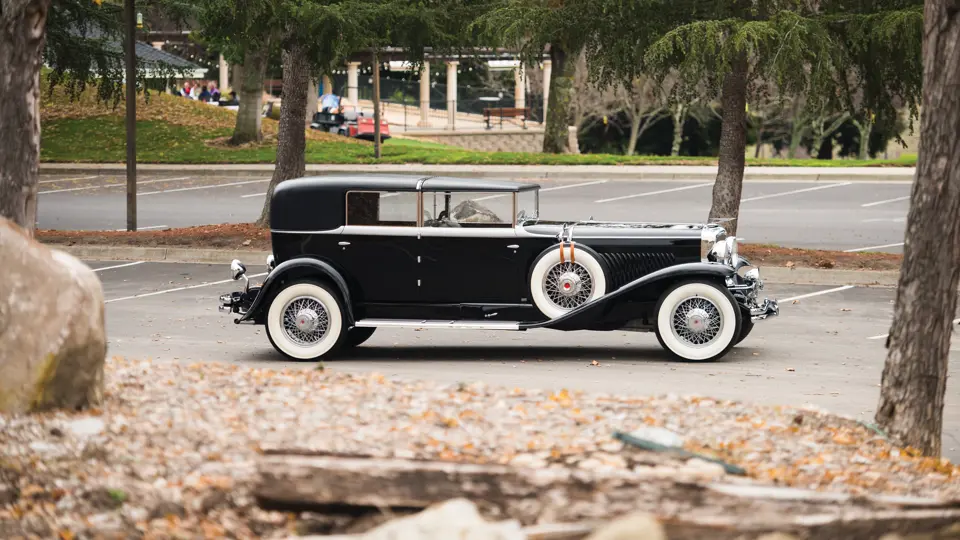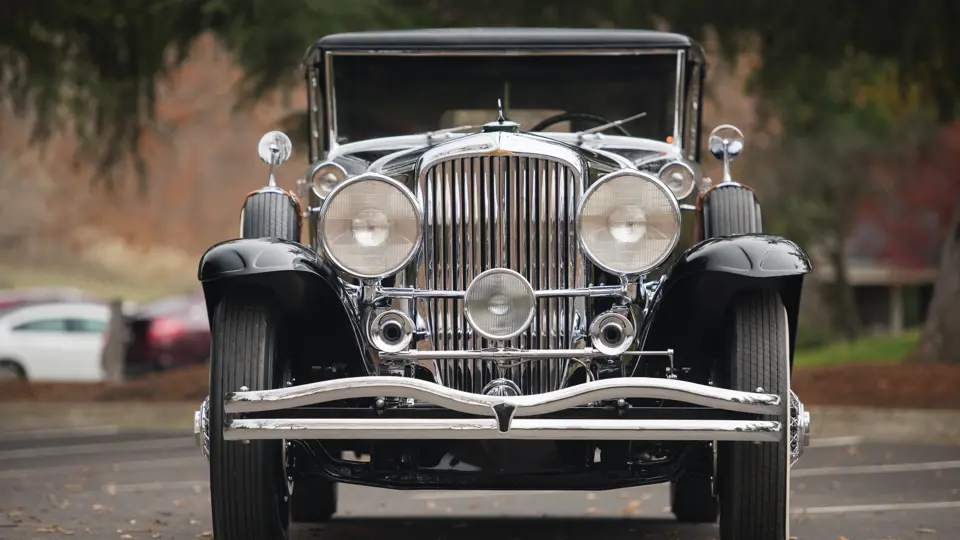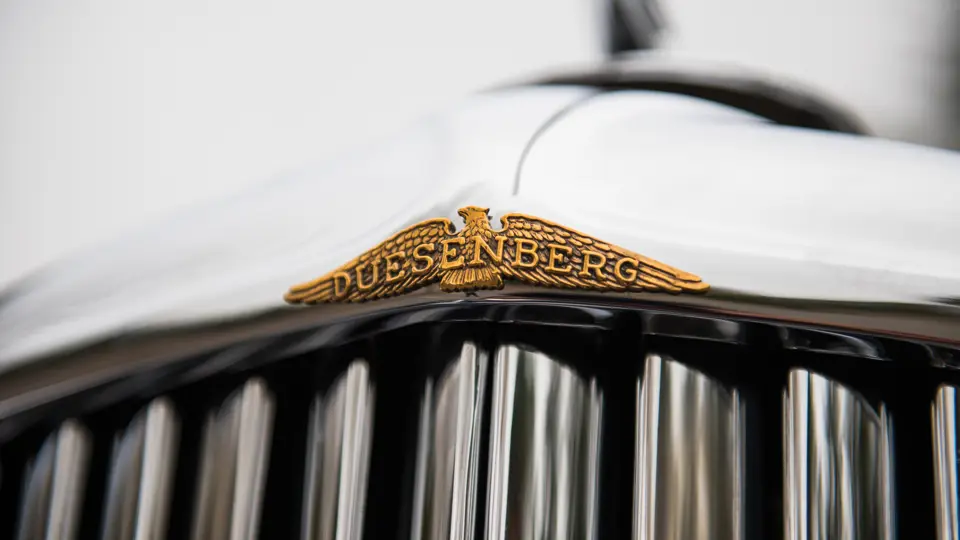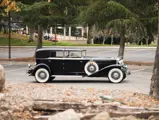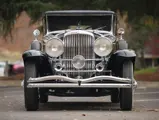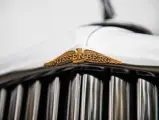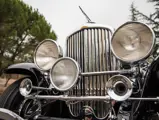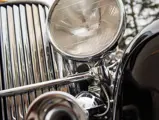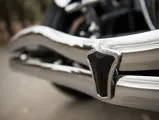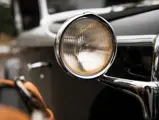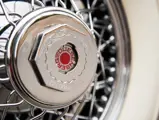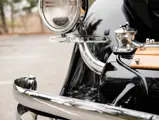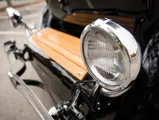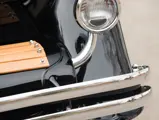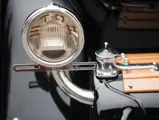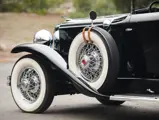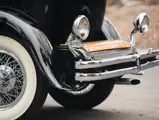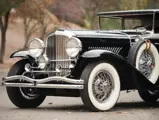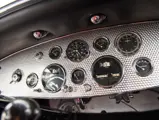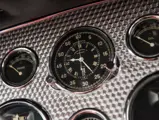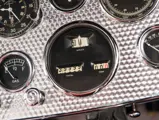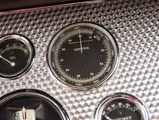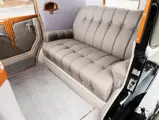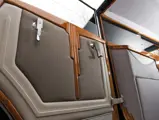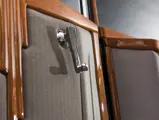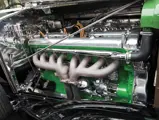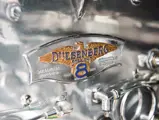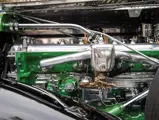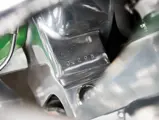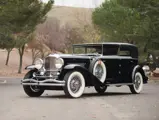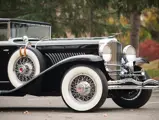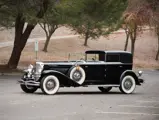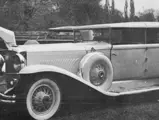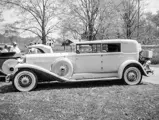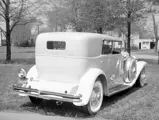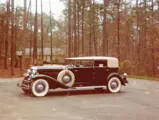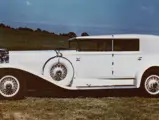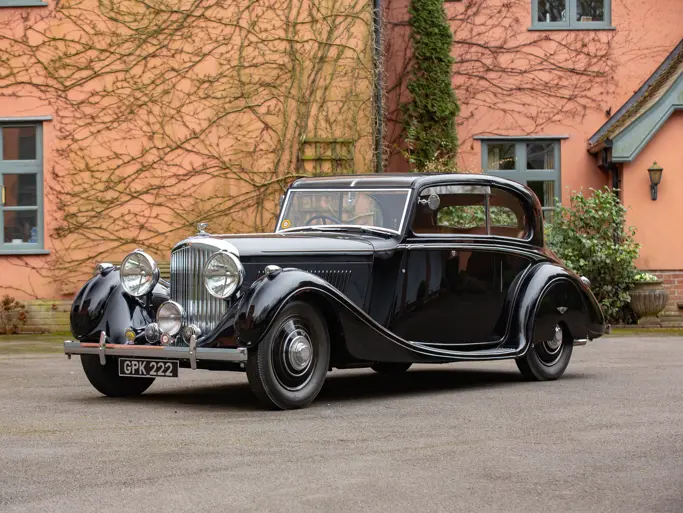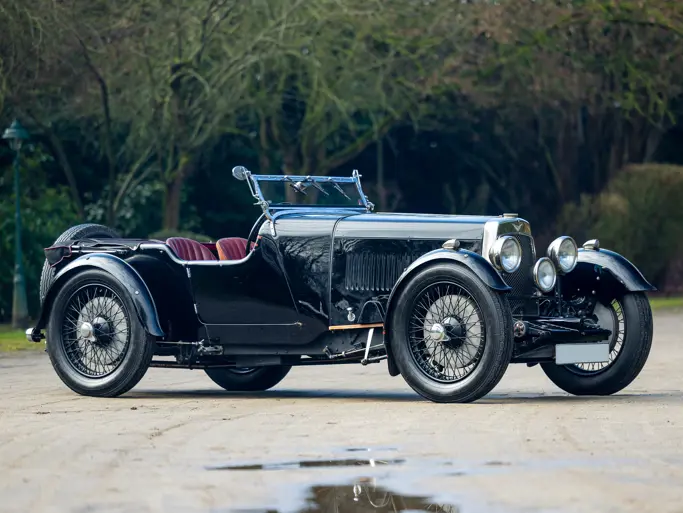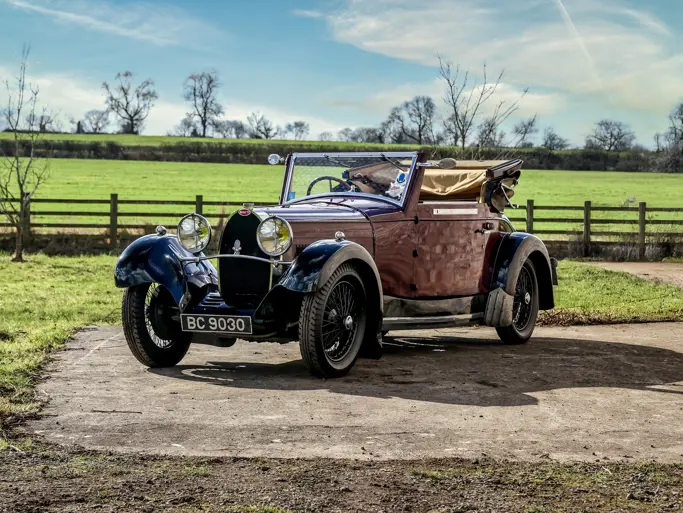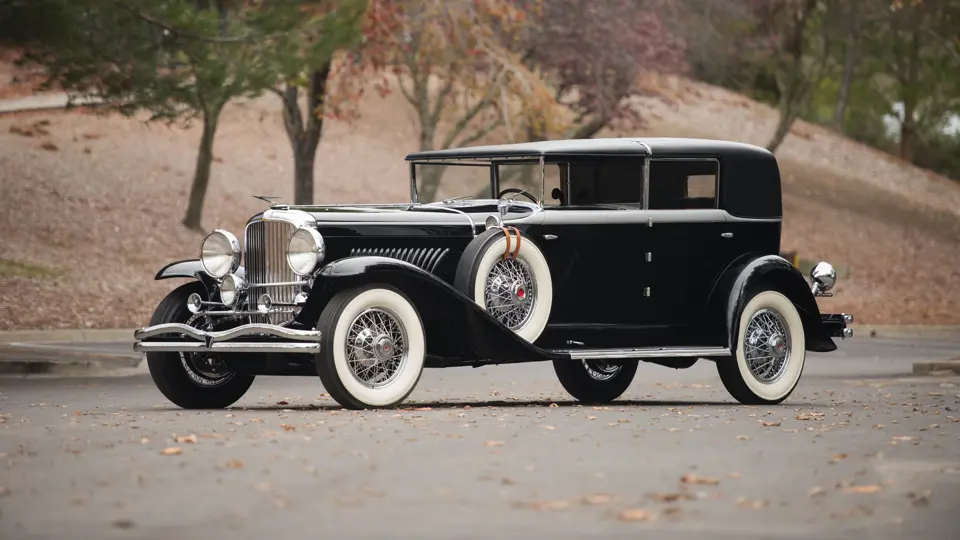
1934 Duesenberg Model J Town Car by Murphy
{{lr.item.text}}
$1,200,000 - $1,400,000 USD | Not Sold
{{bidding.lot.reserveStatusFormatted}}
- One of about six Murphy Town Cars built on Model J chassis
- Built for Philadelphia socialite Ethel M. Dorrance
- Original chassis, engine, firewall, and body from 1934
- ACD certified Category One (D-079)
- A formal Duesenberg of exceptional elegance and provenance
265 bhp, 420 cu. in. DOHC inline eight-cylinder engine, three-speed manual transmission, beam-type front and live rear axles with semi-elliptical leaf springs, and vacuum-assisted four-wheel hydraulic drum brakes. Wheelbase: 153.5 in.
While the Duesenberg Model J’s production run is often quoted as being from 1929 to 1937, the majority of the chassis were in fact built in 1929; during the Depression it simply took the rest of the company’s existence to sell them. Accordingly, chassis 2531 and engine J-295 were not dispatched to one of Duesenberg’s factory branches until March of 1934, when they were sent to Philadelphia. Here, the new chassis was fitted with its original body, this Murphy Town Car, which is one of only six built. As by this time Murphy had been out of business for nearly two years, the body is likely to have been one remaining example finished “in the white,” or removed from an earlier chassis and reconditioned for a new owner.
That owner, to whom the car was delivered on March 22, was Ethel M. Dorrance, widow of John Dorrance, who, while working for the Joseph Campbell Preserve Company of Philadelphia, developed a method to condense and can soup. On the basis of this invention, Dorrance eventually bought out what became the Campbell Soup Company, which he led to prominence until his passing in 1930. He left his widow a fabulously wealthy woman, enabling her acquisition of the Duesenberg four years later.
Early enthusiast Bayard Badenhausen Jr. came upon the car in the early 1940s. As part of his memoirs, written for the Classic Car Club of America Bulletin and published in its January 2013 issue, he recounted that the car had extremely low original mileage, largely due to Mrs. Dorrance having had a brick thrown at her by a political agitator while riding in the car in Philadelphia. She subsequently retired the Duesenberg, which, with just over 1,800 miles and in brand-new condition, wound up in a Philadelphia garage. There, Mr. Badenhausen acquired the car in 1947 for $1,300.
Mr. Badenhausen recalled that “when I got the Duesy home, I was pleased to discover there were no blemishes and nothing missing. I had an incubator baby.” It was used in his wedding in 1948 and subsequently on his honeymoon, after which it was sold to his friend and ace Duesenberg mechanic Jim Hoe of the Hoe Sportcar Garage in Weston, Connecticut.
The car enjoyed short-term ownership by two further Philadelphia-area enthusiasts before being purchased in 1956 by Harold S. Johnson Jr., who would enjoy it for the next 25 years and gave its first restoration, in a brilliant off-white. It was eventually acquired from him by William G. Harrigan of Fulton, Alabama.
Mr. Harrigan’s widow sold her Duesenberg to the well-known Detroit collectors Richard and Linda Kughn, who brought it to the ACD Club National Reunion in Auburn, Indiana, in 1978 and also regularly appeared with it in CCCA activities throughout Michigan. The Duesenberg was owned by the Kughns until the early 1990s, at which point it moved to the West Coast and, shortly thereafter, was added to its current owner’s impressive collection.
The car was restored in its present form by the late, well-respected Mike Fennel and has subsequently been twice displayed at the Pebble Beach Concours d’Elegance, in both 1990 and 2010. Finished in an attractive black and metallic silver, striped in pewter, its colors show off the stately lines to their best advantage. The rear of the roof is covered in black leather, with matching leather to the chauffeur’s compartment, which has a proper folding tendelet, and beautiful, subtly striped grey cloth to the rear. The rear compartment is especially lovely, with the fine Art Deco detailing for which Murphy was renowned in its time, including gorgeous wood decorations, their designs echoed in the cast door handles, and a speaking tube for offering directions to the chauffeur; all are in beautiful order. Today the odometer records 39,999 miles, which, given the car’s “new” condition when Badenhausen bought it and its only gentle use since, may well be the actual mileage.
The Murphy Town Car is among the most elegant of the formal Duesenbergs, and “Dorrance,” as Bayard Badenhausen has dubbed it, is a splendid survivor.

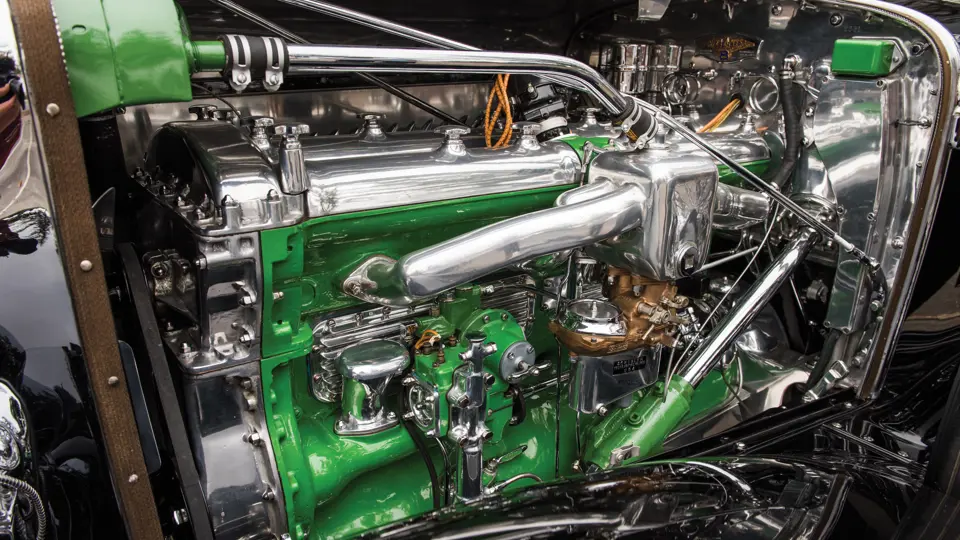


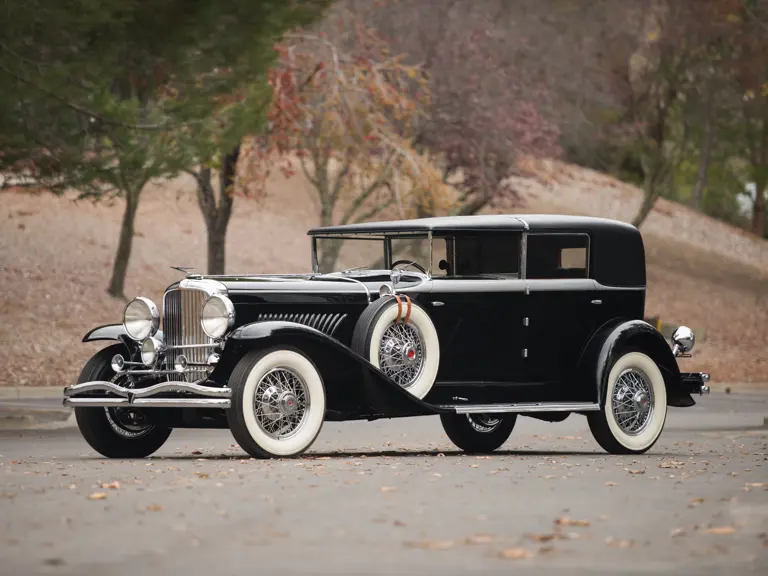
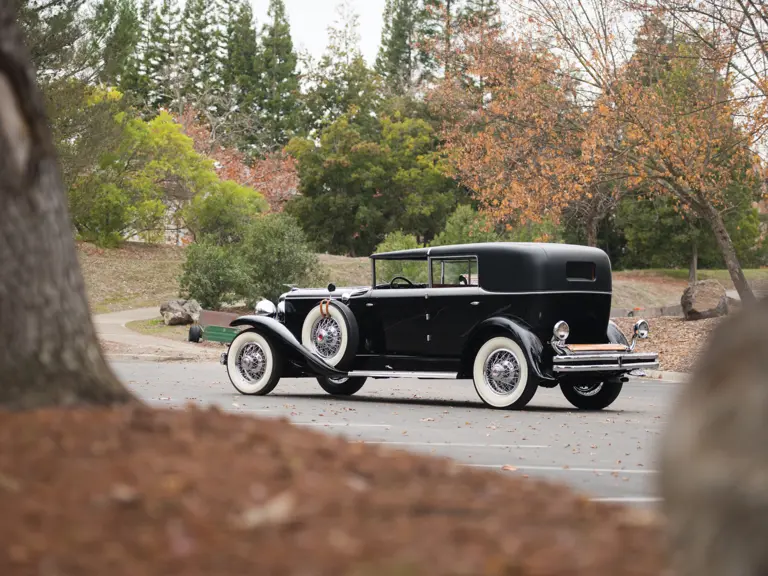
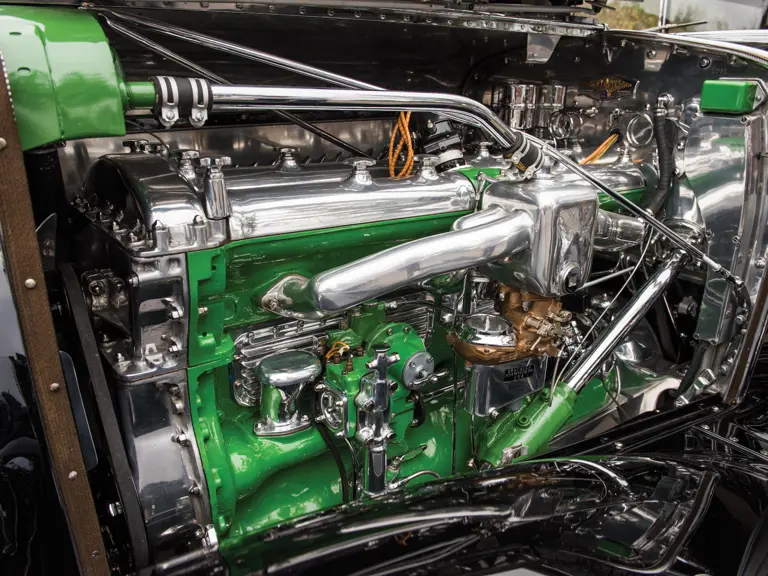
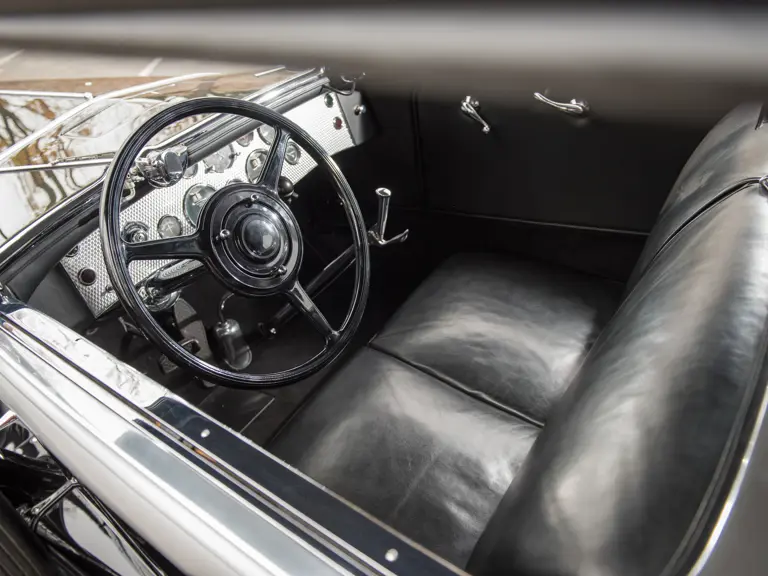
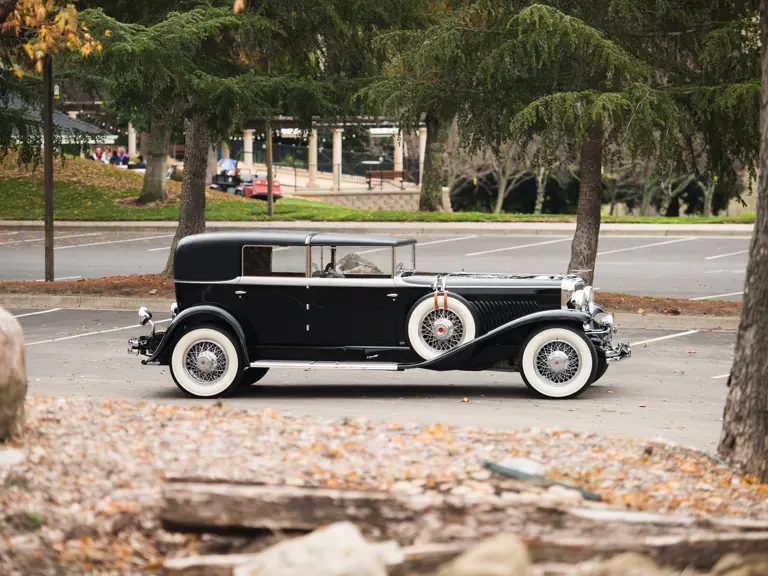
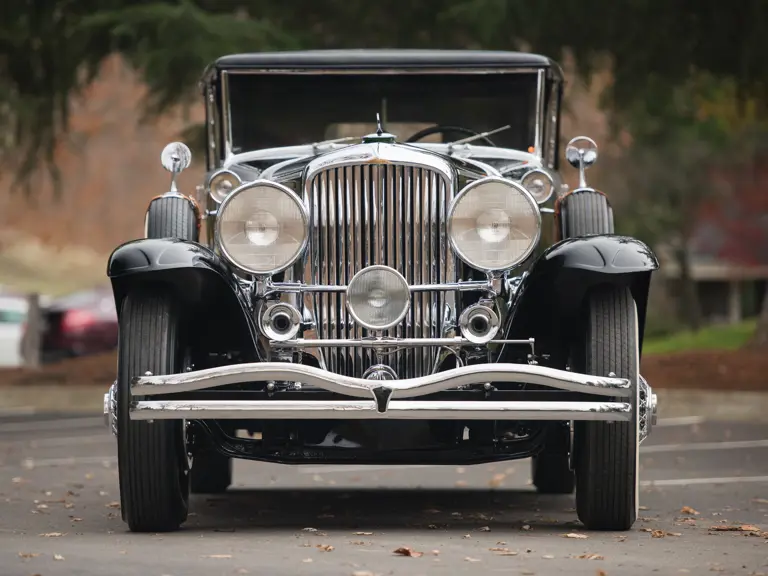
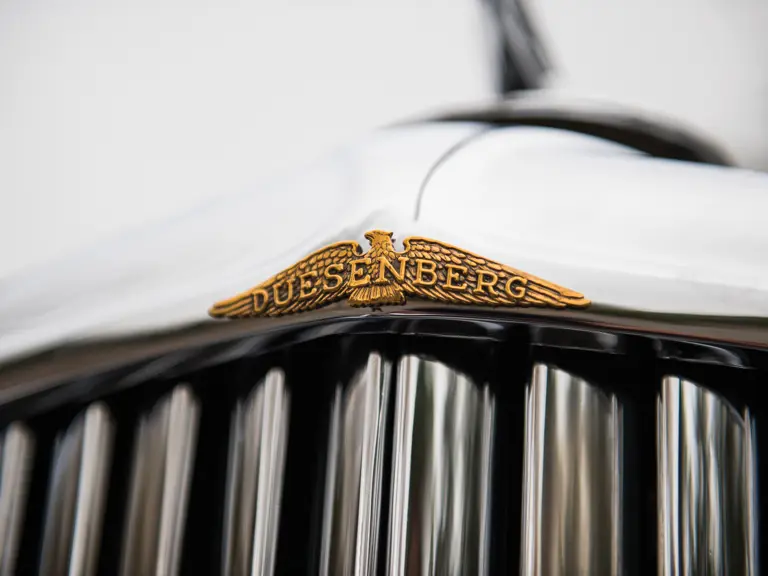
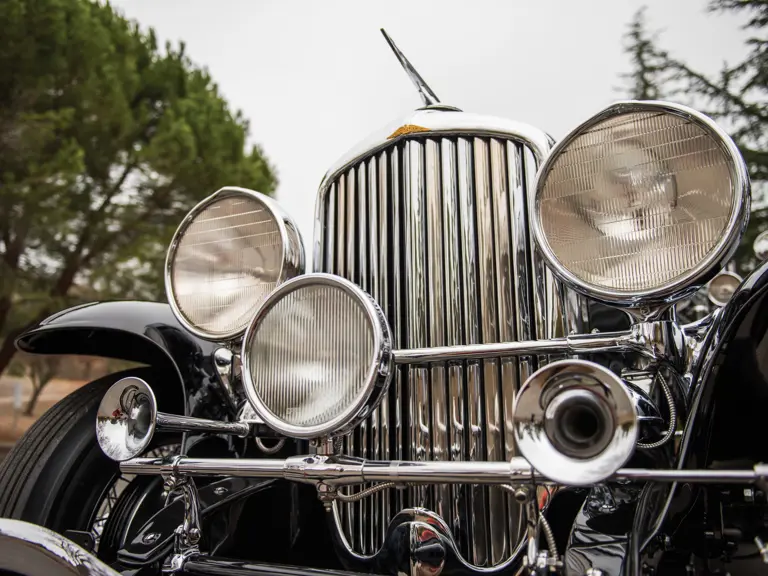
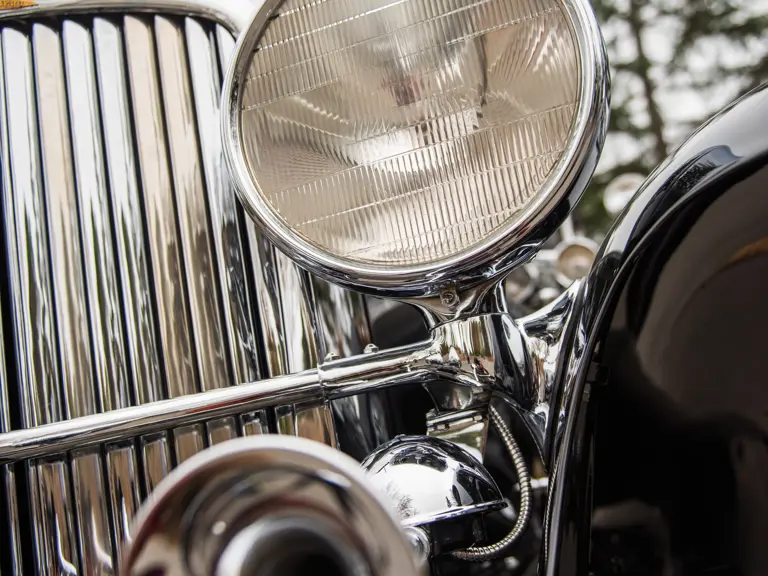
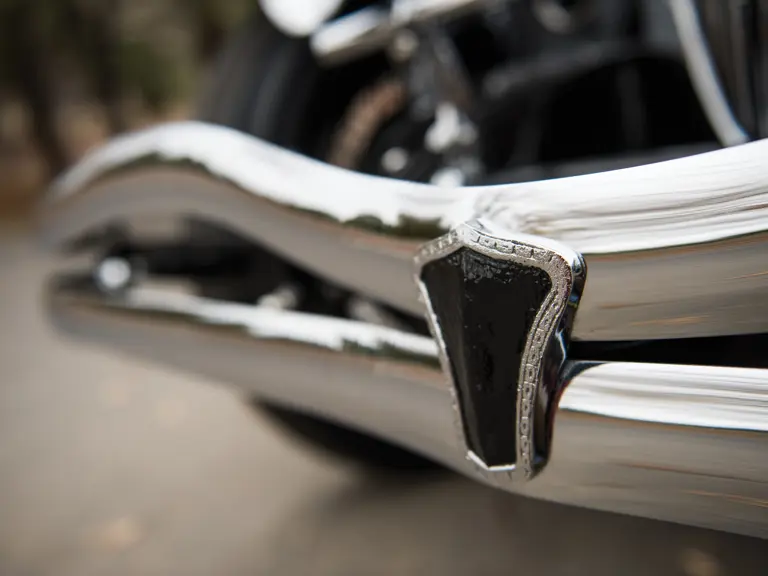
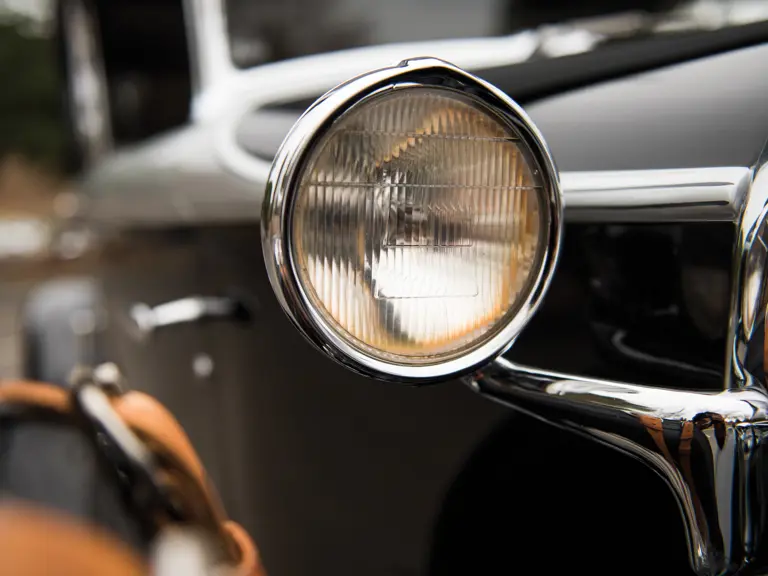
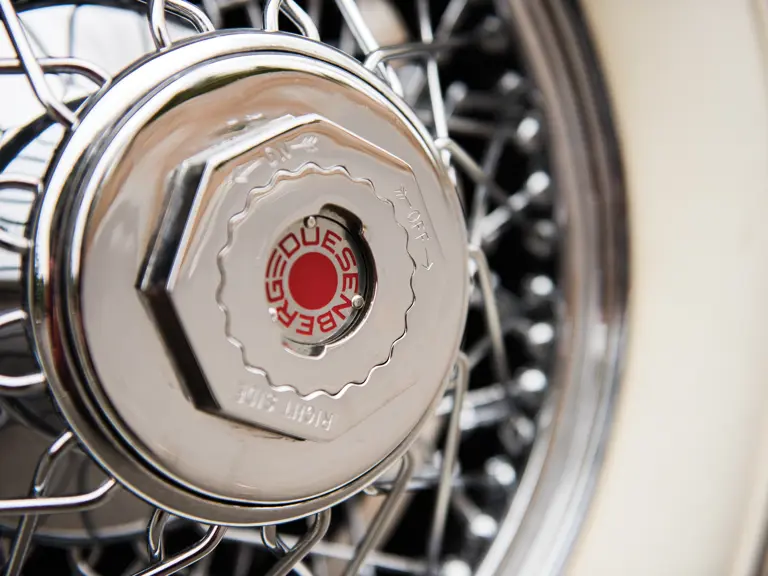

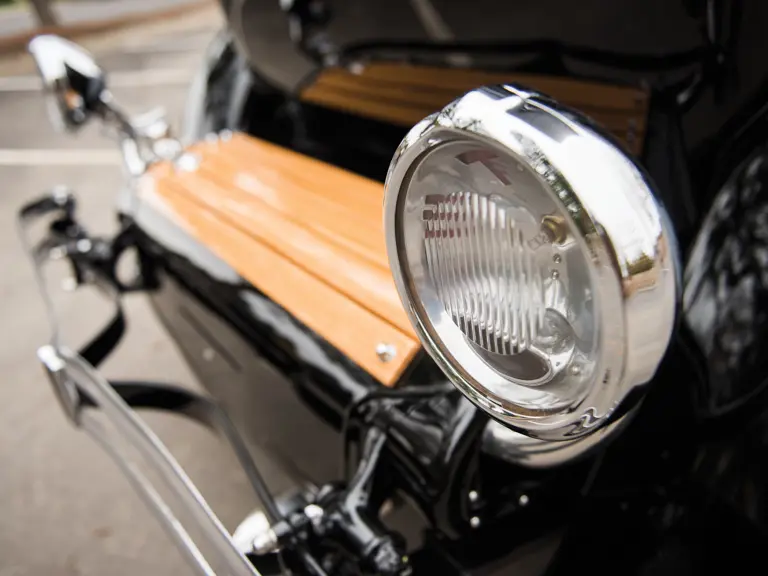
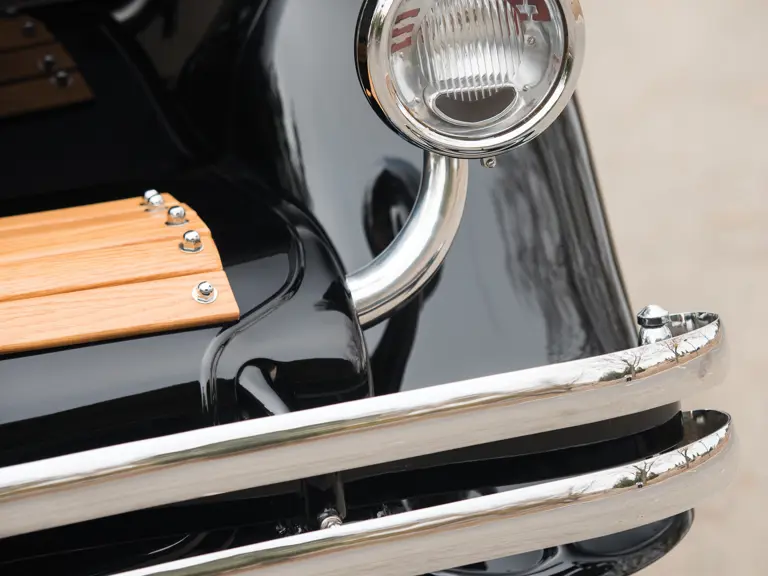
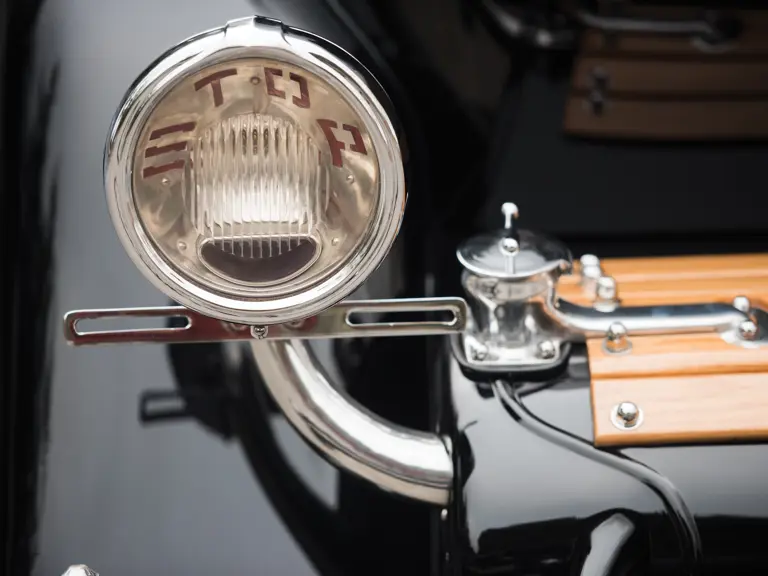
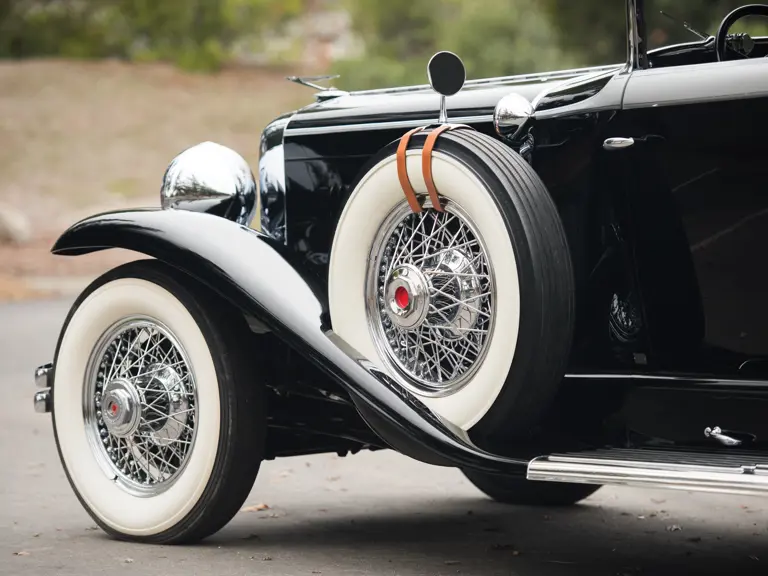
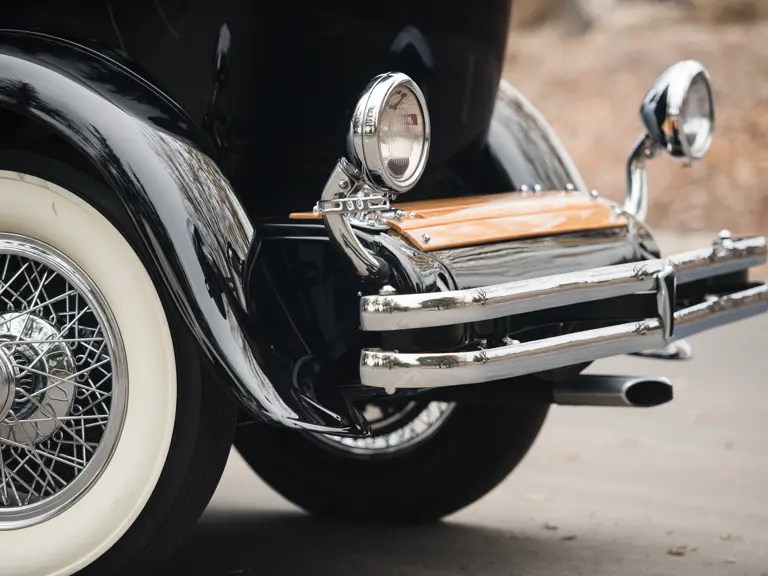
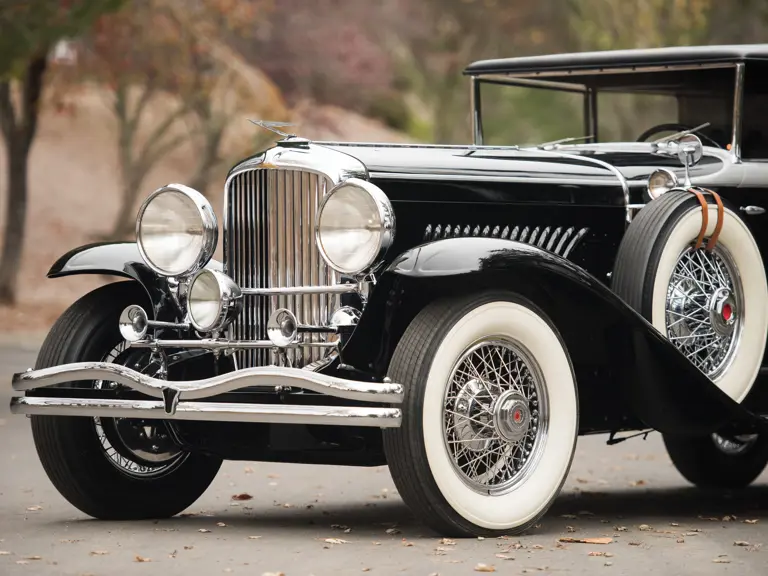
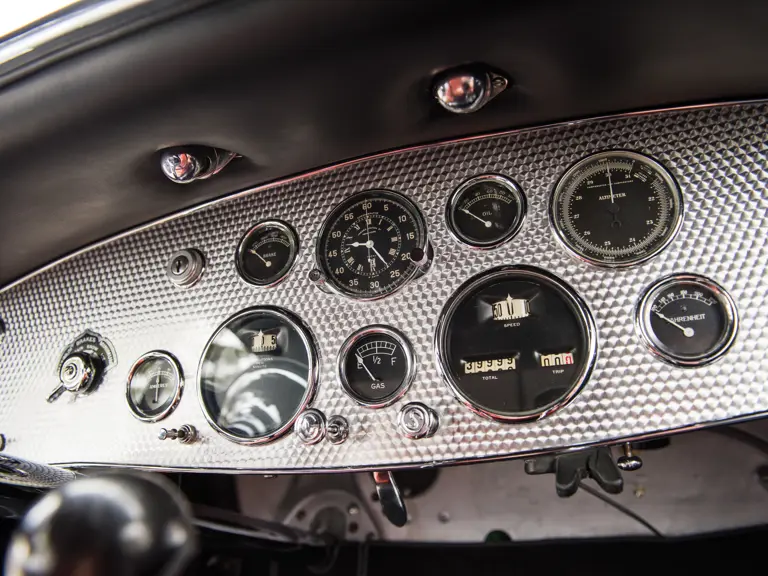
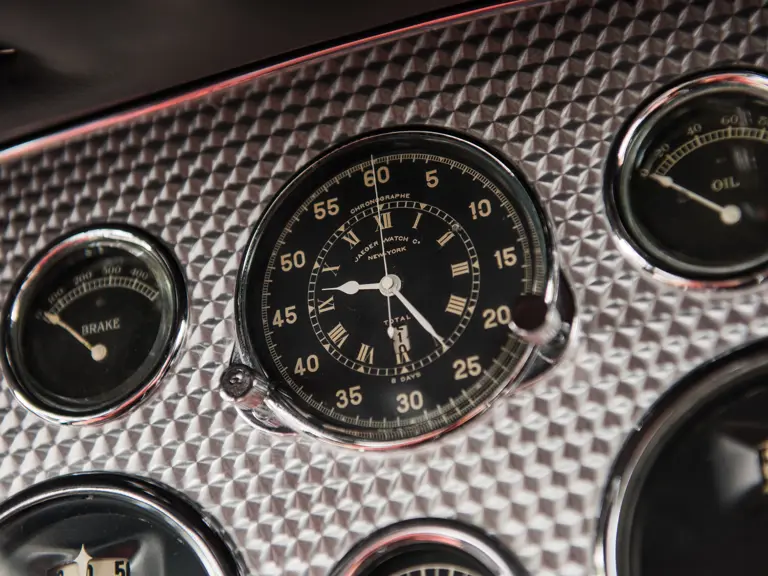
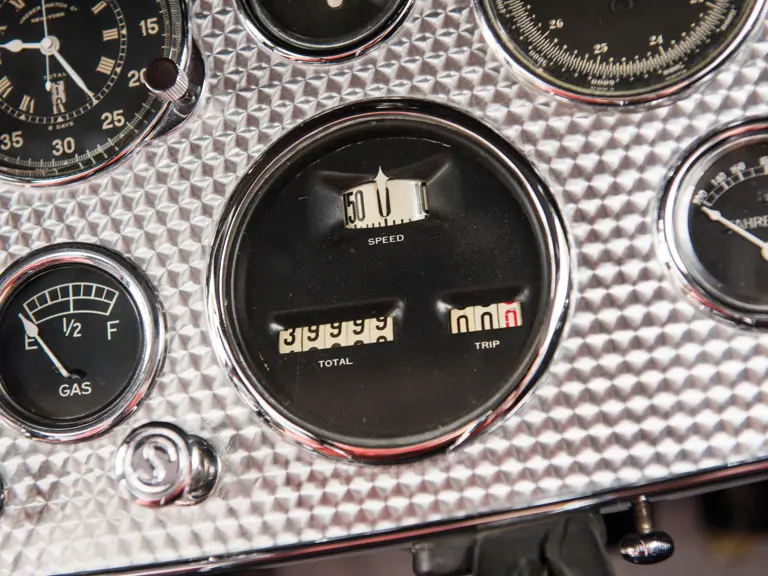
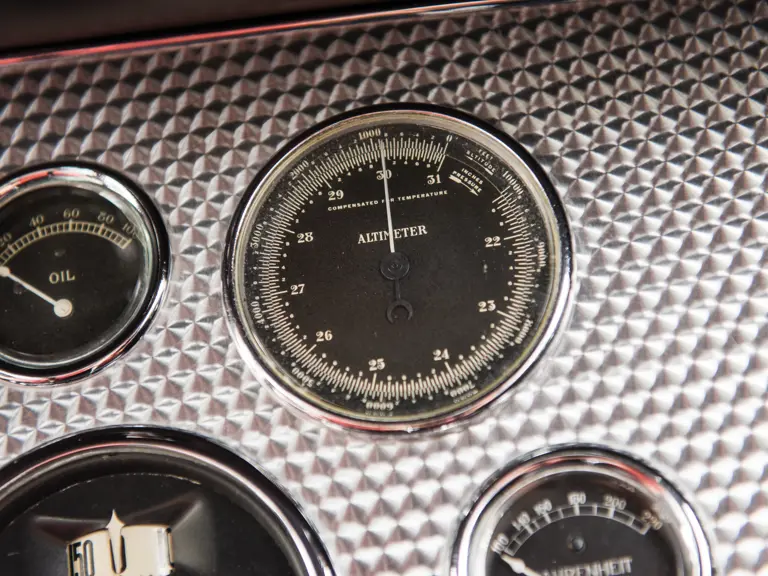
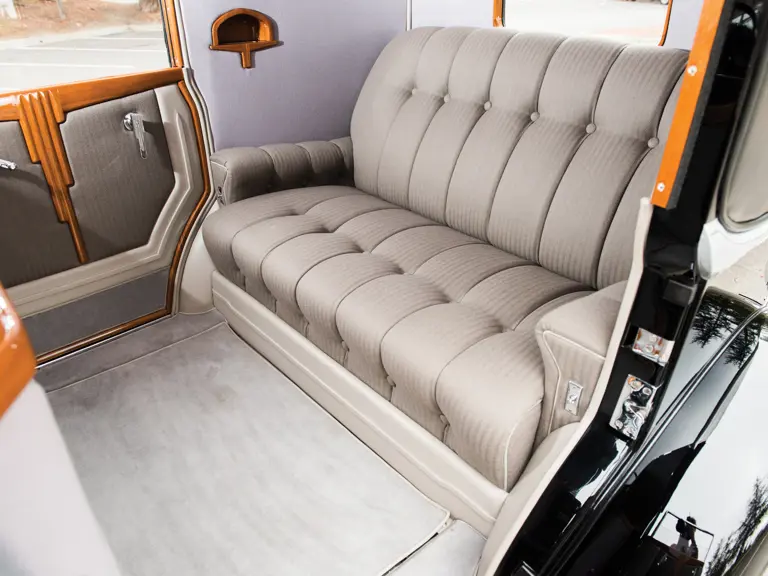
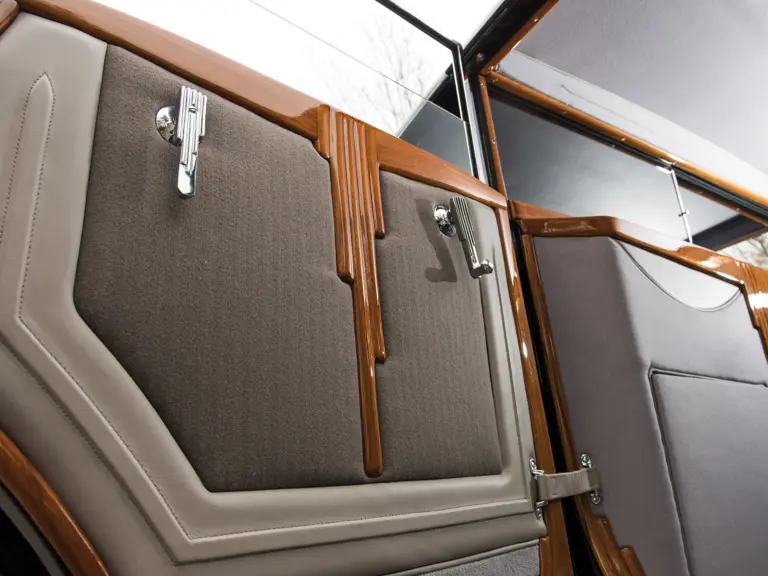
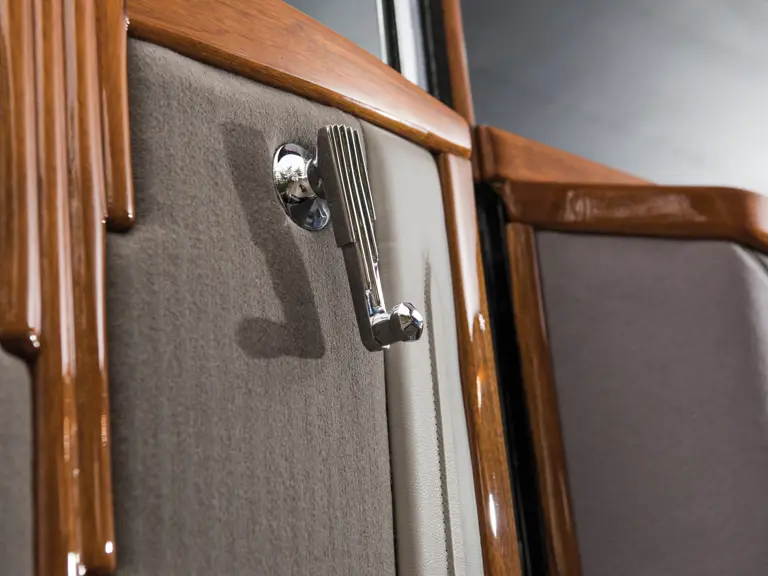
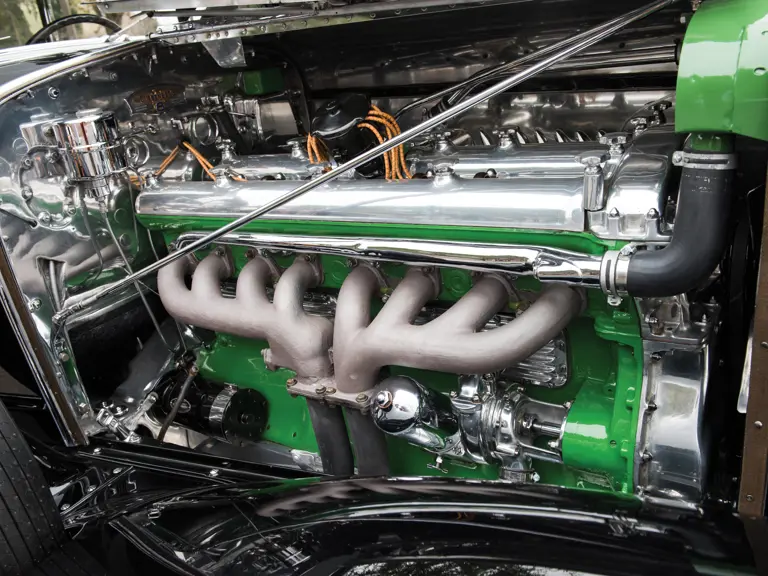
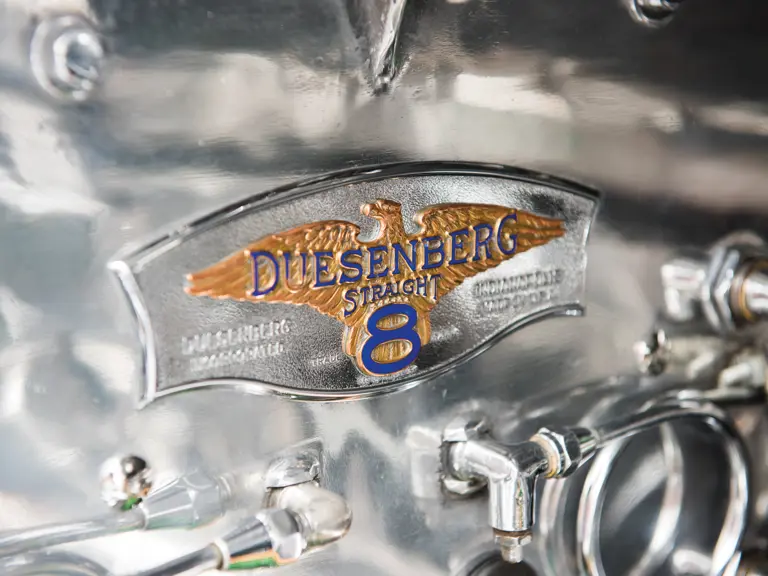
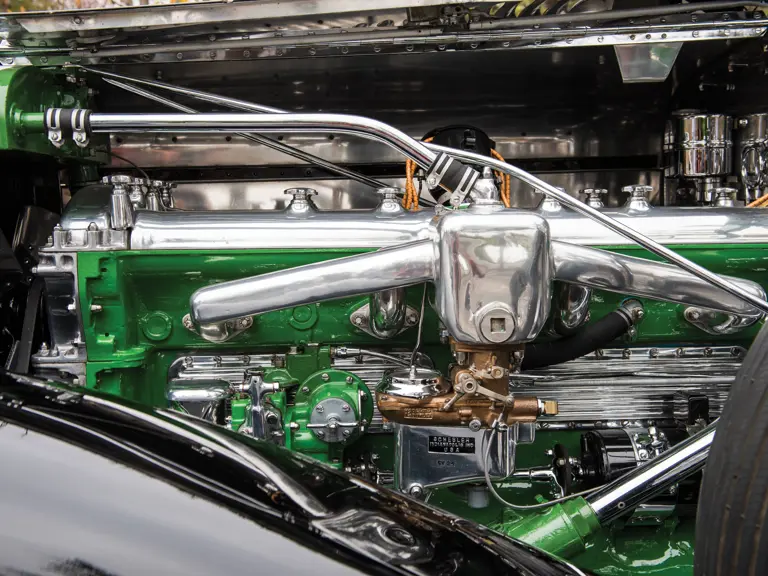
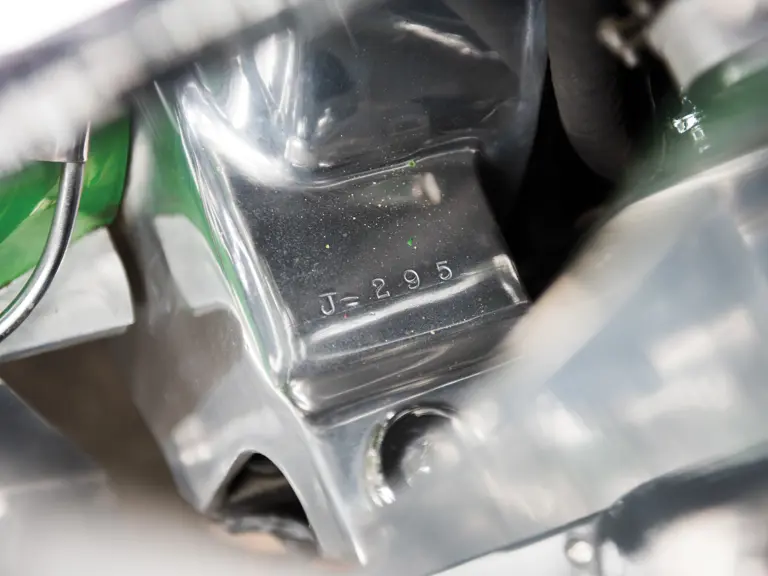
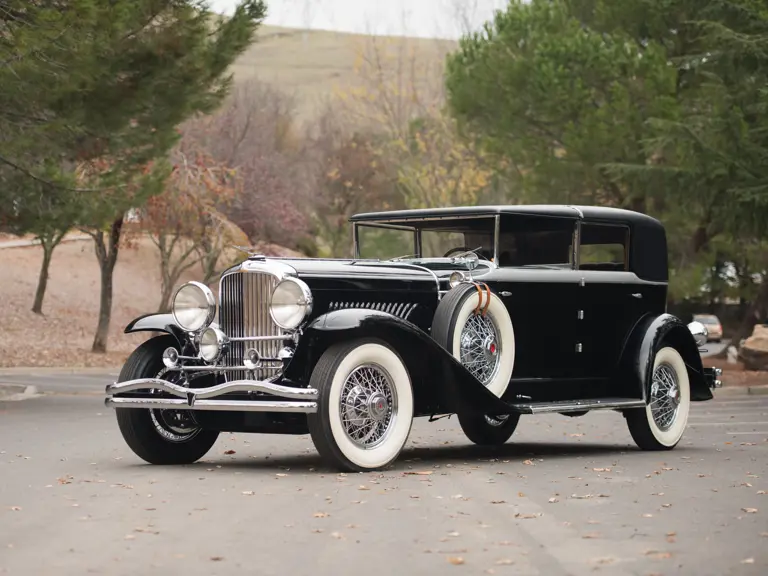
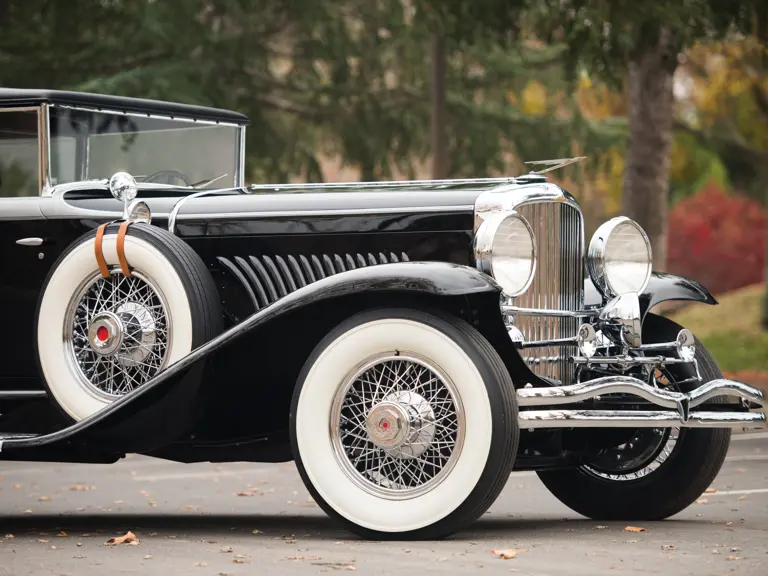
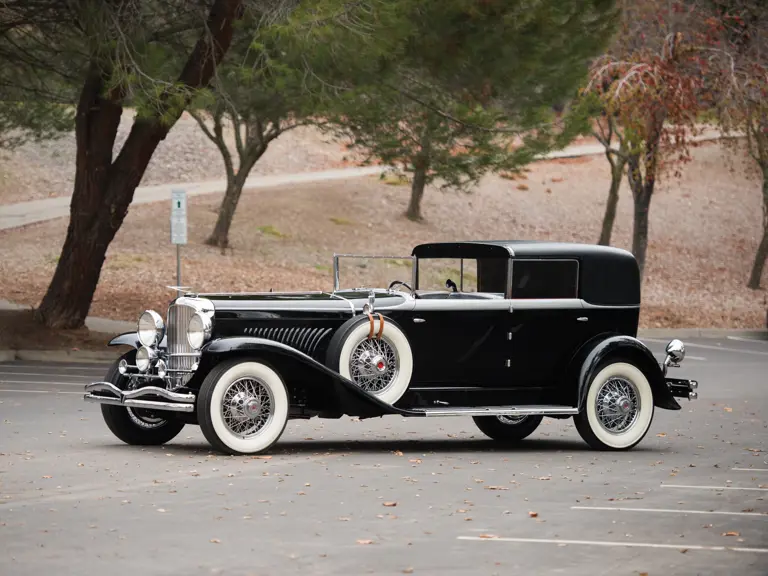
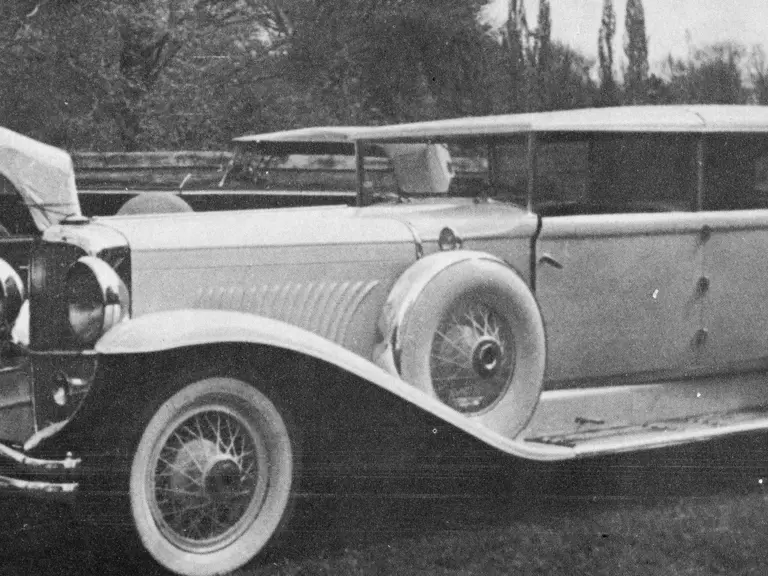
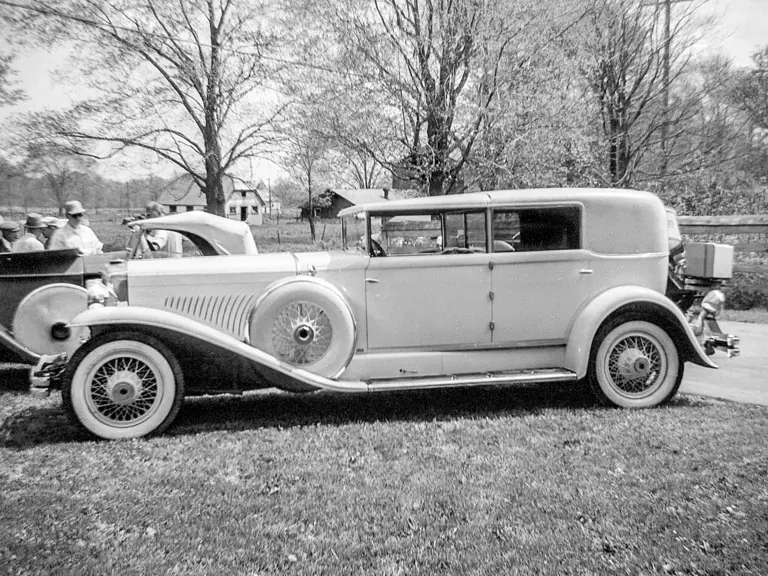
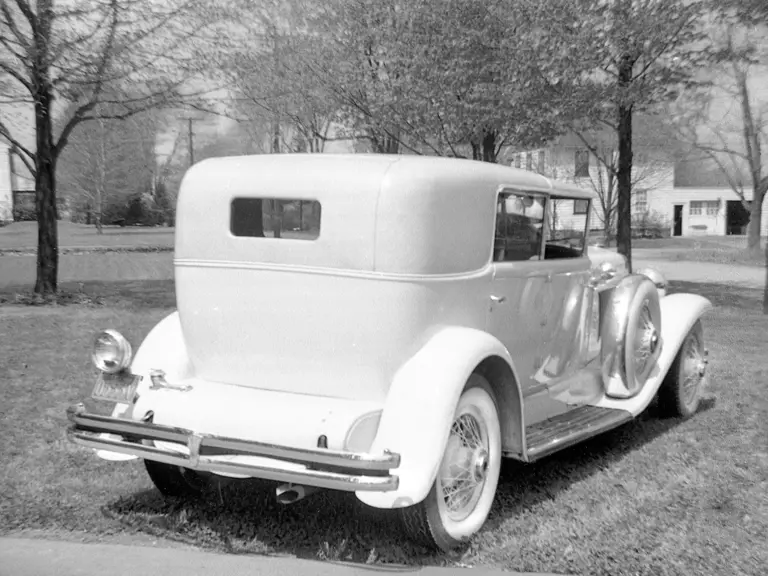
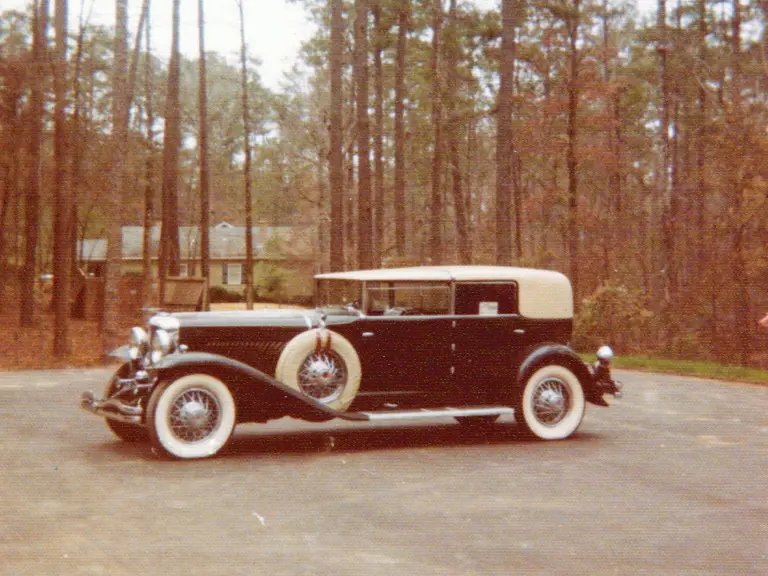
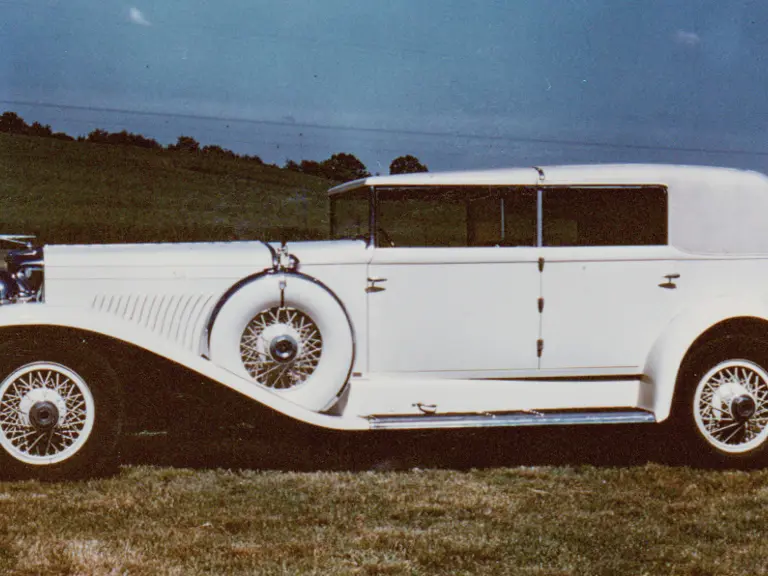
 | Phoenix, Arizona
| Phoenix, Arizona
